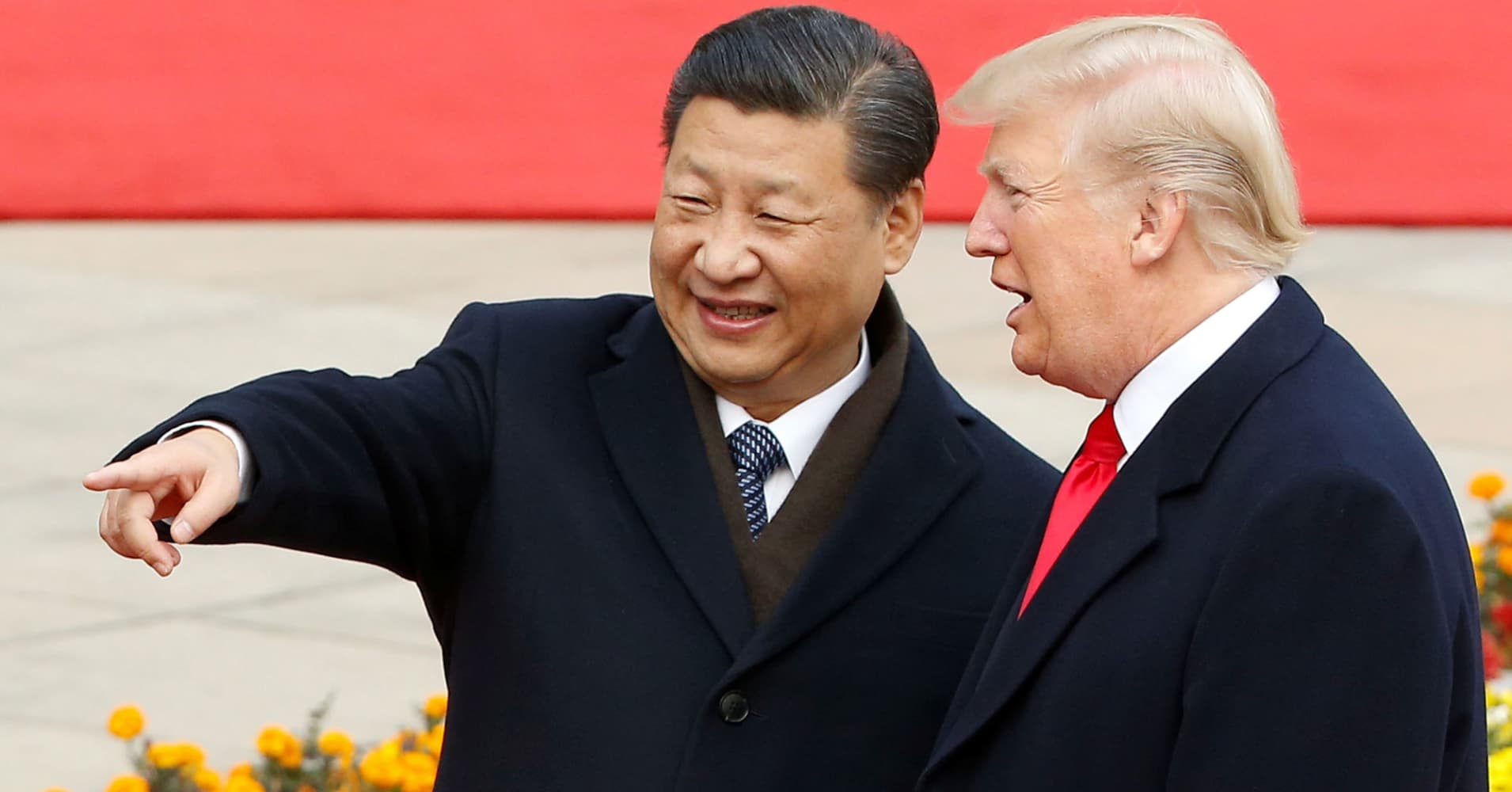
President Donald Trump's assertions about the U.S.-China agreement to pause tariff escalations that emerged over the weekend do not appear to match the White House's official description of the agreement.
Following the conclusion of the G-20 summit in Argentina, the U.S. leader described the agreement brokered with Beijing as "one of the largest deals ever made." He said Chinese President Xi Jinping's government "will be opening up" and "getting rid of tariffs."
The White House, however, did not back up Trump's claims about China ending tariffs, but referred instead to a temporary agreement not to raise them further. And it gave little indication of China "opening up."
In a statement, the White House press secretary said Beijing will agree to purchase "a not yet agreed upon, but very substantial" amount of U.S. agricultural, energy, industrial and other products in order "to reduce the trade imbalance between our two countries."
During the talks at the G-20 meeting, the two superpowers agreed to delay additional taxes on each other's goods for the next 90 days — during which time they will try to overcome difficult structural challenges including "forced technology transfer, intellectual property protection, non-tariff barriers, cyber intrusions and cyber theft."
The president's broad conclusions about the trade agreement also didn't mesh with Chinese state media's more measured descriptions.
The White House did not immediately respond to a CNBC request for comment overnight.
Political watchers were quick to highlight the contrast between Trump's lofty proclamations and the official statement from the White House.
Trump's comments "show his number one priority is the appearance of being a great dealmaker," said Mintaro Oba, a former U.S. State Department official who specialized in the Koreas during the Obama administration. "It doesn't matter to him what the details are, as long as he looks strong to his supporters."
"When it comes to anything associated with him, especially deals, things can't just be good, they have to be best," Oba continued.
Trump is under pressure from American businesses to resolve the trade fight. In September, U.S. companies in China said they were already hurting from the initial $50 billion worth of tariffs, according to a joint survey from the American Chamber of Commerce China and the American Chamber of Commerce Shanghai.
Complaints from American corporations as well as the Republican Party's losses in the midterm elections may be adding pressure on Trump to ease tensions, said David Adelman, former U.S. ambassador to Singapore and adjunct professor at the New York University. "The President seems eager for a deal," he said.
While news of a trade cease-fire was welcomed by the international community, skepticism remains as to whether Washington and Beijing can ultimately reach a solution that leads to a rollback of current tariffs.
"The results of the discussions in Buenos Aires are positive, but contrary to President Trump's enthusiastic comments, did not result in a breakthrough," said Adelman.
Beyond the trade front, Beijing will also more vigorously prosecute fentanyl smugglers, the White House statement said. Fentanyl — a synthetic opioid that is 50 times more addictive than heroin — has been linked to thousands of overdose deaths in the United States. China is one of the world's top producers of ingredients used to manufacture fentanyl, according to the U.S. Department of Justice.
The White House described China's new stance on fentanyl as a "wonderful humanitarian gesture."
via IFTTT
No comments:
Post a Comment